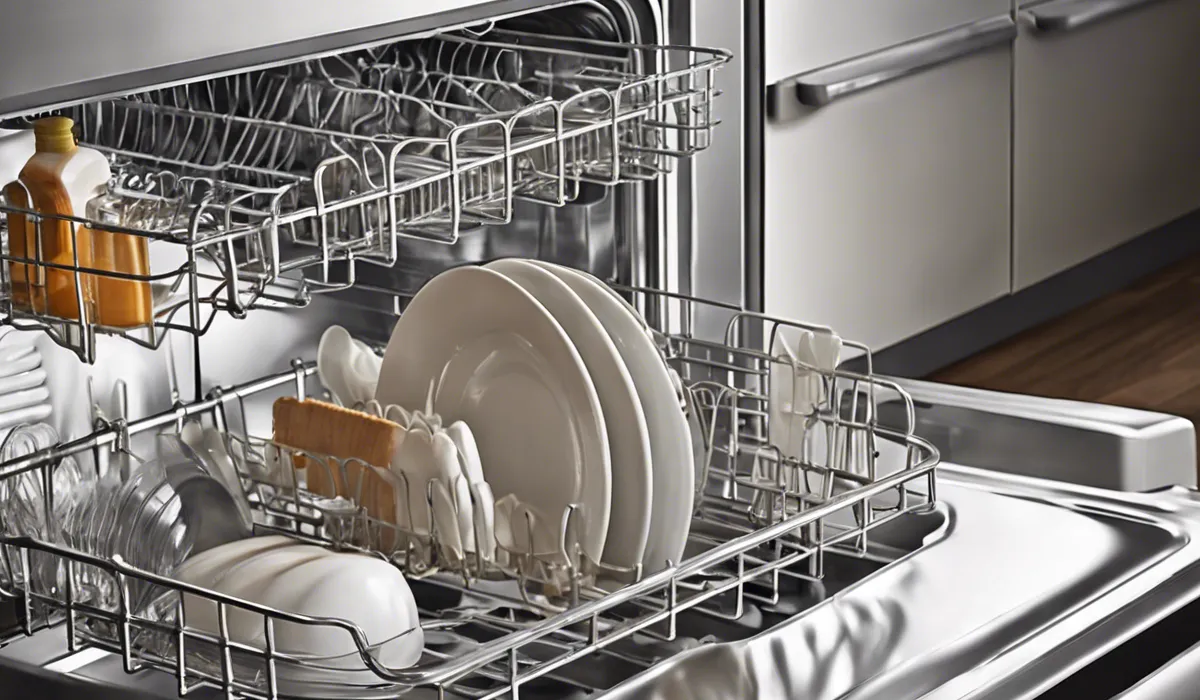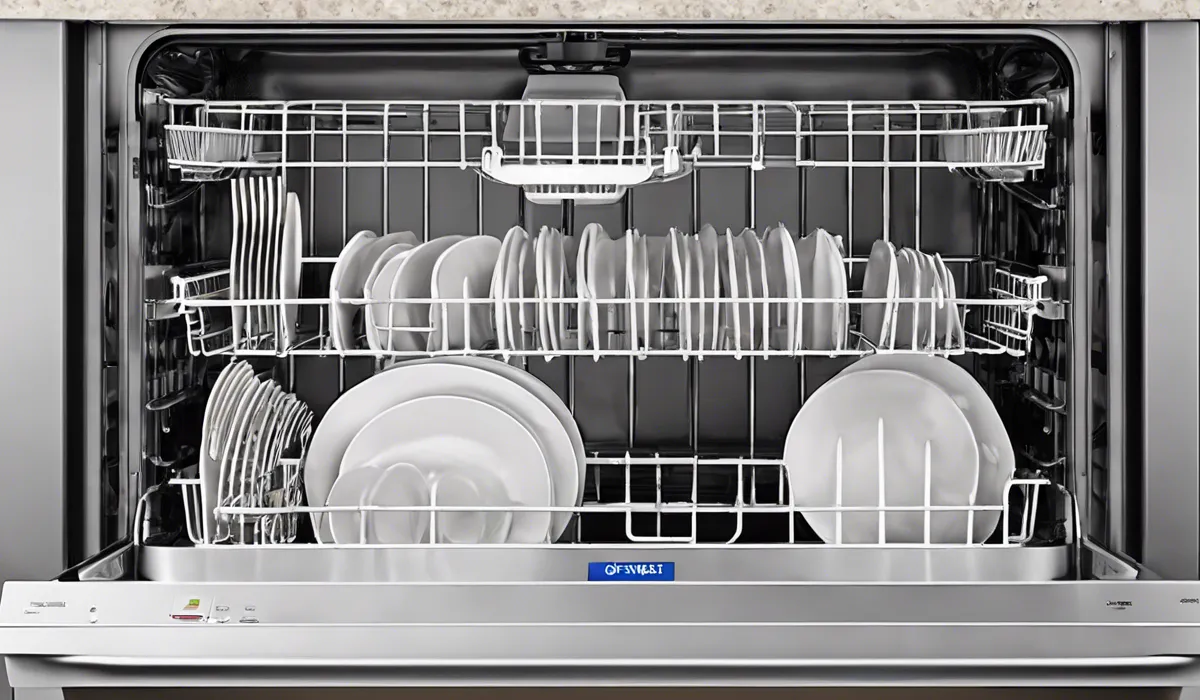Why is Dishwasher Water Brown? Uncover the Mystery!
Dishwasher water may turn brown due to food residue, mineral buildup from hard water, or a rusty dishwasher heating element. Regular maintenance, including cleaning filters and using water softeners, can help prevent this issue.
Possible Causes of Brown Water in a Dishwasher

Food Residue Buildup
One common source of brown water in a dishwasher is the buildup of food residue. When dishes are loaded without pre-rinsing, particles of food can become trapped in the machine’s filters and crevices.
Over time, these food bits can decompose and lead to water discoloration. Foods that are high in starch, such as pasta and rice, or those that can easily break down, like beans and vegetables, are more prone to causing buildup.
Additionally, greasy foods can leave a film on surfaces that attracts and holds other food particles.
Rust and Mineral Deposits
Water with a high iron content can cause rust formation inside your dishwasher, leaving a brown tinge to the water.
This is particularly true in areas with hard water, which contains high levels of minerals like calcium and magnesium.
These minerals can accumulate on the dishwasher’s heating element and other components, reducing efficiency and leading to discolored water.
Additionally, older homes with aging pipes or water heaters may contribute to the problem, as corroded pipes can add rust to the water supply.
Dishwasher Drainage Problems
Proper drainage is crucial for any dishwasher to function correctly. If water cannot drain away effectively, it can become stagnant and lead to brown discoloration.
Common issues that affect drainage include clogs from food particles and debris, or improperly installed drainage systems that prevent water from exiting the dishwasher.
Ensuring that the dishwasher is level and that the drain hose is not kinked or obstructed can help prevent drainage problems.
Health and Hygiene Implications

Bacteria and Mold Growth
Stagnant water within a dishwasher can create an ideal environment for bacteria and mold to grow. This not only affects the appearance and smell of your dishwasher but can also pose health risks.
Bacteria and mold thrive in moist, nutrient-rich environments like those found in a dishwasher with brown water.
Regularly cleaning and maintaining your dishwasher is essential to prevent the growth of these harmful organisms and protect your family’s health.
Effect on Dishware and Utensils
Brown water in your dishwasher can have a lasting impact on your dishware and utensils.
Over time, this discoloration can cause stains that are difficult to remove, and in some cases, it can even damage the items.
There are also valid concerns about the cleanliness of dishes washed in brown water, as they may harbor unseen bacteria or mold spores.
Ensuring that your dishwasher is functioning correctly and producing clean water is vital for the safety and longevity of your kitchenware.
Solutions and Preventative Measures

Regular Cleaning and Maintenance
To prevent issues with brown dishwasher water, regular cleaning and maintenance are key.
This includes a step-by-step routine to clean filters and spray arms, and to check for food particles and residue buildup.
It is recommended to perform a thorough cleaning every month and to inspect the dishwasher for signs of wear or malfunction. By keeping your dishwasher in top condition, you can extend its lifespan and ensure it cleans effectively.
Water Treatment Options
If hard water or high iron content is to blame for your dishwasher’s brown water, there are several treatment options available.
Installing a water softener can significantly reduce mineral buildup, while an iron filter can help eliminate rust particles from the water supply.
Additionally, using rinse aids or specially formulated dishwasher salts can help mitigate the effects of hard water and keep your dishwasher running smoothly.
Professional Assessment and Repair
When home remedies fail to resolve the issue of brown water in your dishwasher, it may be time to seek professional help.
A qualified technician can assess your dishwasher and plumbing system to pinpoint the cause of the problem.
Services may include pipe replacement, dishwasher repair, or adjustments to the installation. Do not hesitate to call in a professional to ensure that your dishwasher is safe and effective for everyday use.
FAQs About Dishwasher Water Turning Brown
Why is the water in my dishwasher brown?
The water in your dishwasher may turn brown due to food residue, mineral deposits from hard water, or a rusty dishwasher heating element.
Can a dirty filter cause brown water in the dishwasher?
Yes, a dirty filter can cause brown water in the dishwasher as it may trap food particles that can eventually lead to discoloration of the water.
How does hard water contribute to brown water in the dishwasher?
Hard water contains minerals like iron and manganese, which can build up and stain the water brown over time.
Could a rusty heating element be the reason my dishwasher water is brown?
Yes, if your dishwasher’s heating element is rusty, it can cause the water to turn brown.
What maintenance can prevent brown water in my dishwasher?
Regular maintenance, such as cleaning the dishwasher filters and using water softeners, can help prevent the water from turning brown.
Final Thoughts
Brown dishwasher water is typically caused by food particles, mineral deposits from hard water, or corrosion of the heating element.
To prevent this discoloration, perform regular maintenance that includes filter cleaning and mitigating hard water effects with softeners. This ensures the appliance operates effectively and maintains water clarity.





